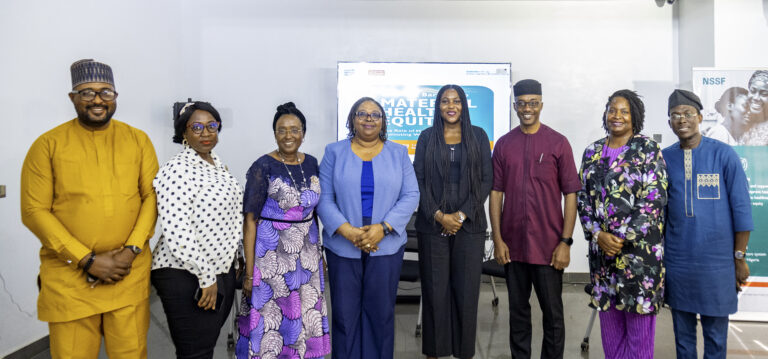The Nigeria Solidarity Support Fund (NSSF) has advocated comprehensive policy reforms and increased financial backing to enhance maternal health equity through inclusive health insurance.
This was disclosed in a statement signed by Ms Esther Anolu, Head of Marketing and Communications at NSSF, and made available to journalists on Thursday in Lagos.
During the 7th edition of its Fireside Chat Series held in Abuja, NSSF’s Managing Director/CEO, Dr Fejiro Chinye-Nwoko, reaffirmed the fund’s commitment to advancing maternal health equity across Nigeria.
Chinye-Nwoko described the event’s theme, “Breaking Barriers to Maternal Health Equity: The Role of Health Insurance in Promoting Women’s Wellness,” as timely, given the country’s troubling maternal health statistics.
“Nigeria’s maternal mortality rate remains unacceptably high with over 1,000 deaths per 100,000 live births. This cannot continue. We are here to ask the hard questions: how can we ensure that when a woman needs care, she can access it without money in her pocket and without delay? That’s what health insurance is meant to do, and it must be inclusive and accessible,” she said.
Panel discussions featured leading health experts. Dr Mojisola Odeku of the Bill & Melinda Gates Foundation stressed the importance of donor support in broadening women’s access to healthcare.
Prof. Chima Onoka, speaking on behalf of the Director-General of the National Health Insurance Authority (NHIA), highlighted efforts to expand coverage and digitise enrolment.
Dr Binyerem Ukaire, Director of the Family Health Department at the Federal Ministry of Health, outlined national initiatives such as free emergency C-sections and Vesico-Vaginal Fistula (VVF) treatments in over 20 states.
Chinye-Nwoko added that many women remain “uninformed, unregistered, unempowered, and underserved.” She emphasised that while tools and partnerships exist, what is urgently required is committed policy execution and sustainable funding.
According to the statement, one of the most pressing issues raised was, “Who pays for the health of the poor?” — a question that sparked debate on the need for financing models that ease the burden on vulnerable women.
The panel reached a consensus that without solid financial safety nets, such as government-subsidised health coverage, millions of women would continue to be left behind.
The discussion also underscored prevention as a key strategy, with panellists advocating for expanded access to screenings, mental health services, and contraception as ways to reduce maternal deaths and cut healthcare costs.
The NSSF also shared insights from its fieldwork in Ekiti State and its WeNaija Impact Cohort programme, which uncovered barriers such as misinformation, distrust, affordability, and complex enrolment processes.
The statement reaffirmed NSSF’s commitment to turning dialogue into action. The fund is preparing targeted policy briefs that will be shared with stakeholders in government, healthcare institutions, and civil society.
“These briefs will offer actionable recommendations aimed at shaping inclusive, gender-sensitive health insurance policies that prioritise maternal wellness.
As part of our next steps, we are also adapting some of these learnings into our internal programmes, particularly through the WeNaija Impact Cohort.
This is where community advocates are integrating innovative solutions such as insurance education, wellness voucher models, and localised engagement strategies to improve maternal health access at the grassroots,” the statement said.
(NAN)


